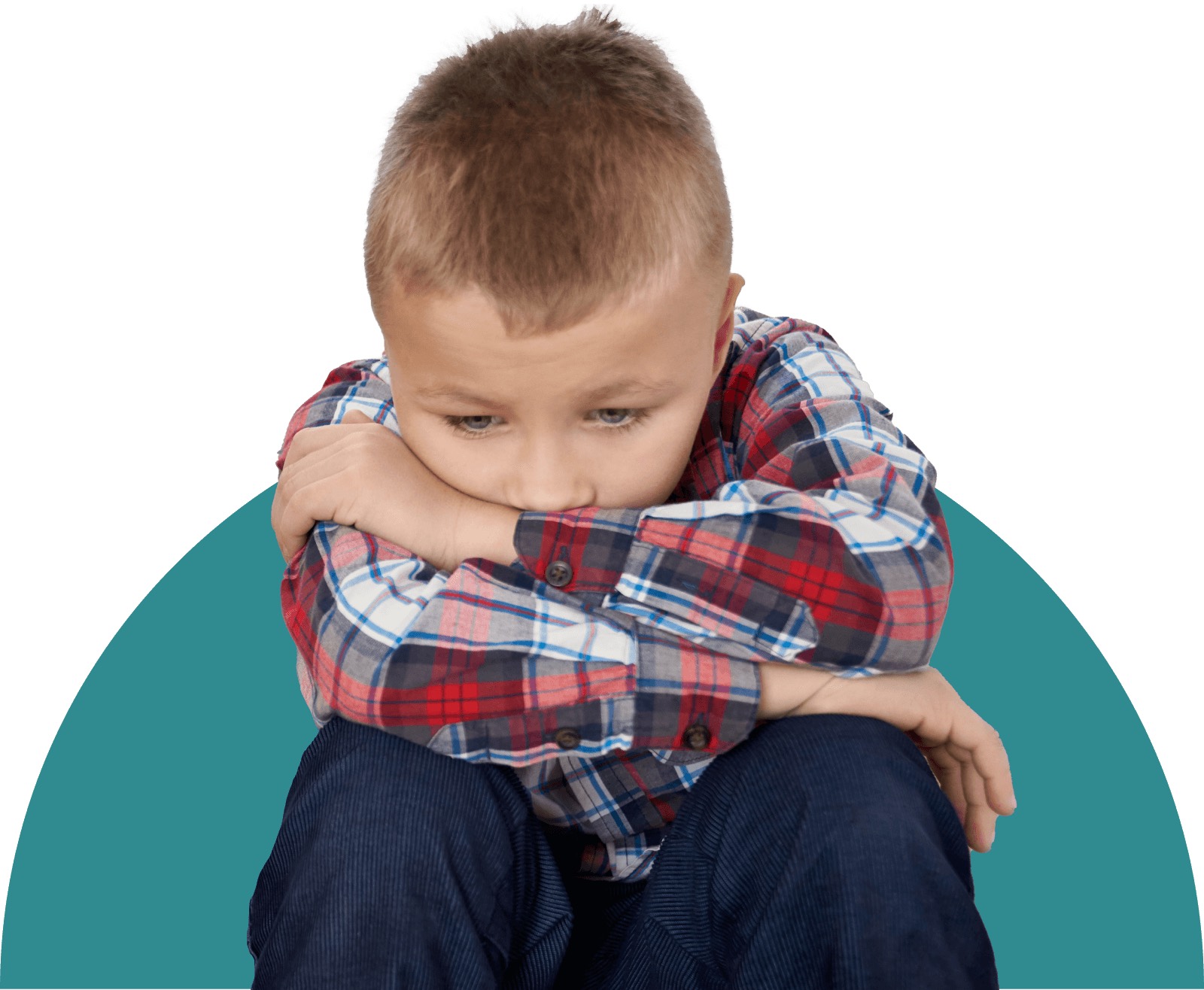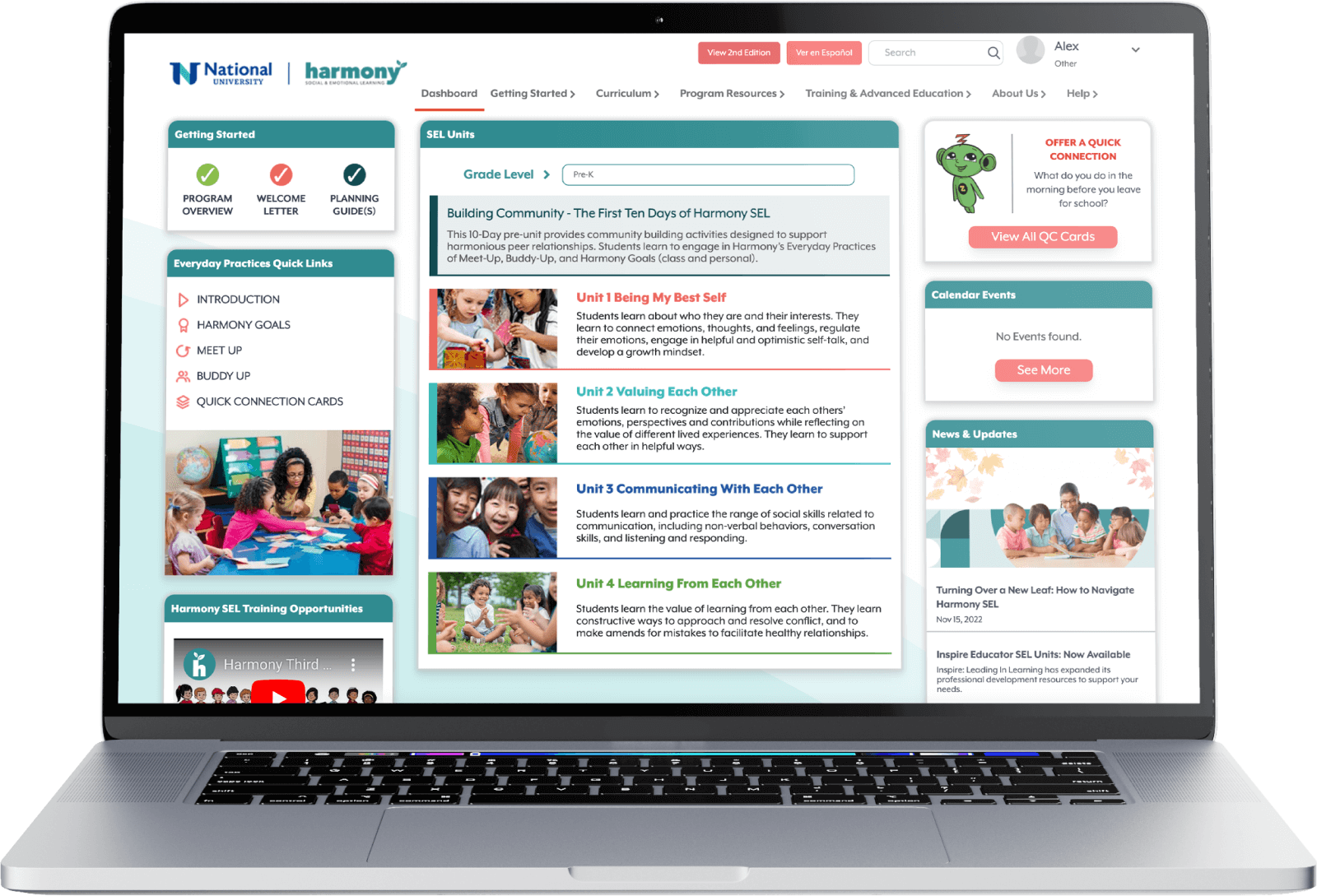
As an educator, have you been challenged with bullying behavior in your school? It can look like many different things, including verbal bullying and cyberbullying.
As many as one in five students report having experienced bullying in the classroom. Bullying can have many negative side effects, including physical, social, emotional, and academic harm to everyone involved. Harmony SEL is on a mission to decrease statistics like these through the use of social and emotional learning (SEL). We provide resources to equip students in grades Pre-K-6 to practice vital social and emotional skills, pursue academic and personal goals with confidence, and build positive friendships and relationships by offering:
- SEL training for teachers
- SEL-focused lesson plans
- General online SEL learning
In this blog post, we will address the following:
- What is Harmony SEL?
- What is Social and Emotional Learning?
- What types of bullying are there?
- How can teachers prevent bullying in school?
- How can Social and Emotional Learning play a role in preventing bullying?
What is Harmony SEL?
Harmony SEL, part of National University, has an Online Learning Portal that equips Pre-K-6th grade teachers with everything they need to integrate social and emotional learning into the classroom, including training, lessons, activities, videos, stories, games, and songs.
What Is Social and Emotional Learning?
Social and emotional learning is a teaching and learning process to develop and acquire the skills, knowledge, and beliefs all individuals need to be successful in school, work, and life.
What types of bullying are there?

There are four types of bullying that can occur in the classroom. These types can occur independently, or simultaneously.
- Verbal bullying: saying (or writing) hurtful things to another, including name-calling, teasing, and taunting.
- Social bullying: the act of hurting one’s reputation or relationships. This can include excluding individuals intentionally, asking others to refrain from being their friend, and spreading rumors about someone.
- Physical bullying: hurting someone physically, or hurting their possessions. It includes hitting, slapping, punching, and destroying someone’s personal belongings.
- Cyberbullying: takes place digitally, through the use of cellphones, computers, email, social media, text messaging, and the like.
How can teachers prevent bullying in school?
Developing students’ social and emotional skills is a promising approach to avert bullying. There is evidence that social and emotional learning protects students from becoming targets and lowers the risk of someone bullying others. Schools can address bullying behavior by creating a healthy culture that has clear norms and expectations around bullying, all of which can be successfully taught through SEL lessons.
How can Social and Emotional Learning interventions help prevent bullying?
Harmony has 10 strategies for educators to prevent bullying behavior in schools through the use of social and emotional learning:
- Help students identify and form connections within their class. Our alignment with CASEL core competencies creates an environment where peers are more likely to feel a connection within the classroom.
- Teach students to resolve conflicts and disagreements. Step it Up lets students practice resolving conflicts by engaging in role-playing with a partner.
- Help students form and strengthen relationships. Relationships among peers are vital in reducing bullying behavior within the classroom.
- Advocate for fairness and justice. SEL programs can teach students about fairness and justice in a way young children can easily understand.
- Promote inclusivity. Activities within Harmony such as “The Commonalities Game” encourage the celebration of similarities and differences among students, helping promote inclusivity throughout the classroom.
- Foster enjoyment at school. SEL skills learned within Harmony create a more welcoming and inviting environment, which means students feel more optimistic and are more likely to enjoy going to school.
- Direct students to act less aggressively toward one another. Battle the Bully Bot is a game that helps students consider effective and ineffective ways to deal with bullying as they race across the game board.
- Teach empathy. SEL activities help students develop empathy for better conflict resolution and build skills such as self-awareness, self-management, and responsible decision-making.
- Strengthen social problem-solving skills. Youth will learn social problem-solving skills naturally within each lesson of Harmony.
- Promote academic improvement. SEL interventions that address CASEL’s five core competencies have been shown to increase student success significantly. In fact, 13% academic improvement has been observed.
Harmony is designed to build healthy relationships among students by engaging them in lessons and activities that promote empathy, understanding, and respect. These effective practices build supportive relationships that ultimately help prevent bullying. You can learn more about the benefits of Harmony SEL and start implementing it in your school community at no cost with the social and emotional training and activities available on the Harmony Online Learning Platform.

To access additional SEL training for teachers and further your professional development visit Inspire SEL, our sister product that offers on-demand courses, certification programs, and resources at no cost. Similarly, our parent organization, National University, offers multiple social and emotional learning degrees, including a master of education.
Homeschooling parents, you don’t have to miss out; you can create a profile and practice online social and emotional learning homeschool style!